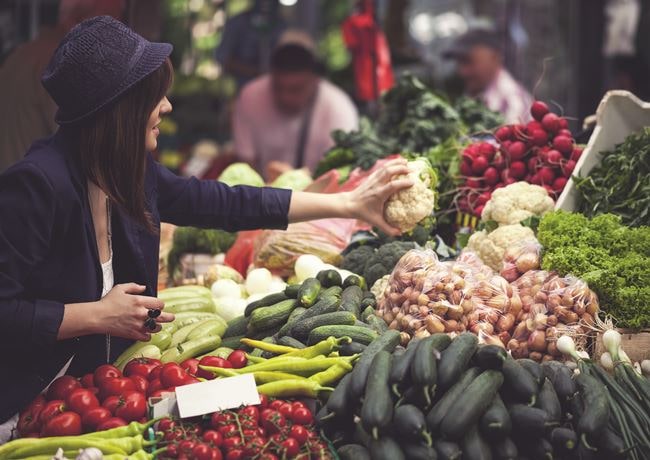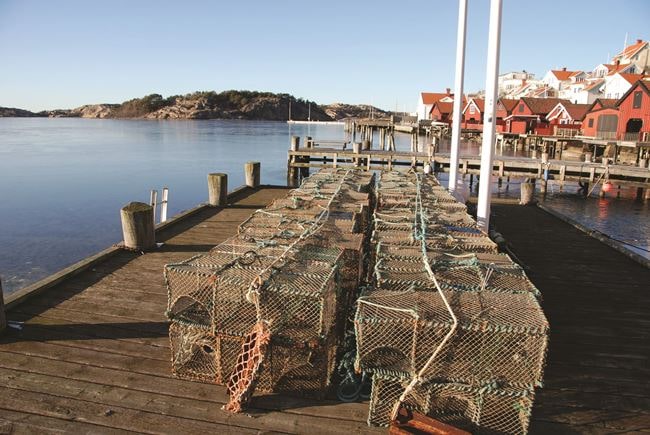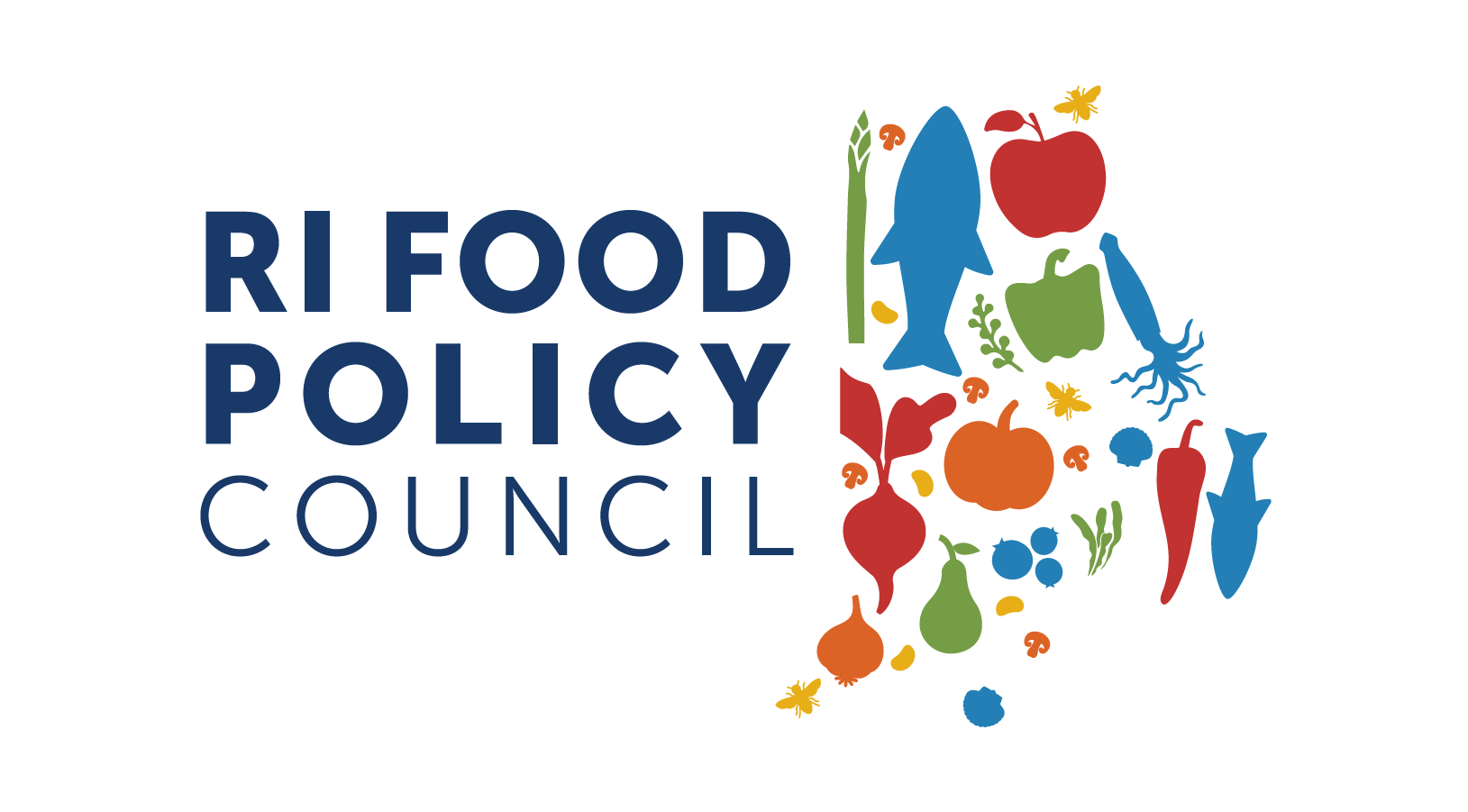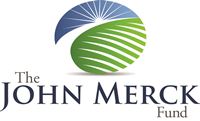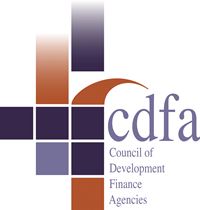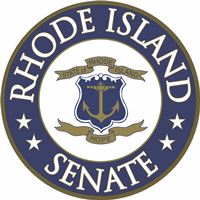RHODE ISLAND FOOD POLICY COUNCIL
Table of Contents
OUR MISSION
We coordinate a statewide network of diverse, committed, and engaged stakeholders from all sectors of the food system. We create partnerships, develop policies, advocate for improvements, and lead projects that enable the state to sustain and expand farming and fishing industries, support local food businesses, ensure food security for all Rhode Island residents, and protect the health of our abundant natural resources.
You’ll see how our work in 2018 is already paying off in 2019 – and how much more we must do. The priorities we have set – thriving farms and fisheries, a vibrant food economy, food access for all, and well-managed food recovery and food waste programs – are critical if our state’s food system is going to overcome systemic obstacles and reach its potential. We made exciting advances in 2018, giving us incredible momentum for the work to come.
These wins should be celebrated, but our work is far from finished. We have set an ambitious course of action for 2019 and beyond. I am encouraged by the strength of our network, united to advance Rhode Island’s food future. Together, we will ensure that our vision is achieved.
Nessa Richman
Right now Rhode Island is in the middle of implementing its first 5-year food strategy — Relish Rhody — launched by Governor Gina Raimondo in May 2017. RIFPC’s mission is fully aligned with this strategy; we work to:
- Preserve and grow agriculture and fisheries industries
- Sustain and create markets for RI food and beverage products
- Enhance climate for food and beverage businesses
- Ensure food security for all Rhode Islanders
- Minimize food waste and divert it from the waste stream
RIFPC started tracking implementation of Relish Rhody in 2018. Our work has resulted in the Rhode Island food system metrics dashboard, which is embedded in our new website: www.rifoodcouncil.org.

PRESERVE & GROW AGRICULTURE, FISHERIES INDUSTRIES IN RHODE ISLAND

ENHANCE THE CLIMATE FOR FOOD & BEVERAGE BUSINESSES

SUSTAIN & CREATE MARKETS FOR RHODE ISLAND FOOD, BEVERAGE PRODUCTS

ENSURE FOOD SECURITY FOR ALL RHODE ISLANDERS
MINIMIZE FOOD WASTE & DIVERT IT FROM THE WASTE STREAM

Tiny but Mighty
This small grant program leveraged over $2.5 million in additional grant and loan funding, created over 80 new jobs, increased sales by more than $5.05 million and launched scores of new products into new markets.
Advocating for Full Funding
RIFPC strongly believes this program deserves adequate, secure funding. In 2018, RIFPC staff went to the State House to meet with legislators and testify on behalf of the Local Agriculture and Seafood Act Grant Program to ensure it continues to provide outsized impacts for Rhode Island farmers and fishers
STRENGTHENING YOUNG AND BEGINNING FARMERS AND FISHERS

RI’s food cluster in 2017 accounted for 69,357 jobs – about 17% of Rhode Island’s total private employment. The cluster saw job growth of 22% in the 15 years from 2002 to 2017 – a period during which total employment in Rhode Island grew by just 3%. According to projections, Rhode Island’s food cluster will add 4,656 jobs from 2016 to 2026 – a growth rate of 7.8%. This is higher than both Rhode Island’s overall projected job growth (5.9%) as well as that of the United States as a whole (7.4%).
The assessment showed that food industry employers want a more qualified pipeline of job candidates, better pre-screening of and matchmaking with job candidates, trainings that engage and retain existing employees while improving their skills, and opportunities for leadership to engage and connect with staff about the meaning of their work within an overall vision of their company’s place within the Rhode Island food system.
A Partnership with Real Jobs RI
This planning work led to a partnership between RIFPC and Real Jobs RI. Real Jobs RI was launched by Governor Gina Raimondo in 2015. Together, RIFPC and Real Jobs RI plan to connect stakeholders across Rhode Island with a common interest in enhancing the climate for food businesses, helping employers and employees across the food sector achieve greater success through an innovative Real Food Jobs RI project. The partnership lasts for five years and will offer employees a career path toward higher paying, higher-skilled jobs within the food industry.
This partnership is committed to growing a vibrant food industry. Food sector employers will be able to work with RIFPC to find and train workers who might otherwise be jobless or in lower wage jobs, thereby improving the livelihood of Rhode Island residents, supporting the state economy, and helping food industry members succeed.
AN EMERGING OPPORTUNITY TO GROW A STRONGER WORKFORCE
Program Director of Real Jobs Rhode Island

A new partnership spurs meaningful change
In 2018, we established a partnership with the Council of Development Finance Agencies to leverage traditional finance to increase funding to the food sector, as well as to improve connectivity and efficiency of capital flows across lenders, investors, public and private funders, and food sector enterprises.
RIFPC brings deep experience and a wide network to the state in terms of work with community development financial institutions and development finance agencies.
Overcoming barriers to seafood processing for our commercial fishing industry
Rhode Island’s seafood industry is a critically important part of the state’s economy. Rhode Island is home port to over 200 Federally permitted vessels and issues over 1,600 state commercial fishing licenses per year. The economic impact of the fishing industry is sizable. In 2016, Rhode Island vessels landed 82.5 million pounds of seafood, with an ex-vessel value of close to $100 million. A 2018 report by the University of Rhode Island estimated that the fishing and seafood sector contributes over $538 million and over 4,000 jobs to the state’s economy.
The intent of this project is to identify investment opportunities in Rhode Island’s commercial fisheries industry that would increase seafood processing capacity and contribute to the economic and environmental sustainability of the state’s fishing and fish processing businesses. There is strong evidence of interest in increasing seafood processing among small, medium-sized, and larger, vertically integrated seafood companies. The goal of the project team is to identify investment opportunities that benefit the widest possible number of fishermen. As part of this project, we are also exploring ways to eliminate a severe wastewater processing constraint in the Port of Galilee and other seafood processing areas. The economic and environmental impacts of this project could directly benefit Rhode Island, and indirectly benefit southern New England and the entire global supply chain of seafood products. Upon completion, this project could create roughly 100-200 new jobs and save between 500-2500 existing jobs either directly or indirectly involved in the seafood sector.
LEVERAGE INVESTMENTS
CEO of Council of Development Finance Agencies

A systemic approach addressing both supply and demand
RIFPC is co-leading an integrated approach to developing the institutional market for local food with state agency staff and experts from across the Northeast. Pulling from best practices developed in New England and across the country we are implementing a plan that includes:
TAILORED SUPPORT FOR INSTITUTIONS
We work with selected institutions to set and achieve goals and build relationships between institutional food buyers, food service management companies, and local food providers that result in more local food being purchased.
TARGETED WORKSHOPS
We organize and advertise high-value workshops to prepare both sides of the institutional marketing chain – supply and demand – with the tools and knowledge they need to work together better.
A team approach to getting local food into state institutions
We partner with partners including RI Commerce Corporation’s SupplyRI program, RI DEM, the RI Director of Food Strategy, the Cornell Small Farms Program, Farm to Institution New England, and Karen Karp & Partners consulting on this project. This public-private partnership approach has been supported by private, state, and federal funding sources.
Build Markets
Executive Director, Farm to Institution New England
Focus on nutrition in food recovery
RIFPC members bring passion and a wide breadth of expertise to their work recovering excess food. Eva Agudelo, Executive Director of Hope’s Harvest RI, mobilizes volunteers to support local farms and reduce food insecurity by rescuing surplus fruits and vegetables from farmers fields and delivering them to food pantries. foodSCAPE, run by Diane Calvin, promotes share tables and donation of surplus food from schools and the summer meals program. Together, members of the Community of Practice advocate at the State House for better food donation laws.
Returning nutrients to the soil
We convene the leaders in food waste management so they can work better together. Council member Jayne Merner Senecal operates Earth Care Farm, which has been producing high quality, farm-made compost at a large scale for over 40 years. Earth Care Farm takes in a large variety of inputs for composting including food scraps from food processors, restaurants, schools and camps. Council members are hard at work educating residents, businesses and government officials about the value of excess food and the potential cost savings of keeping it out of the landfill.
MANAGE EXCESS FOOD AND FOOD RESIDUALS
Executive Director, foodSCAPE
Vice Chair: Eva Agudelo, Hope’s Harvest
Anna Malek, NOAA Fisheries
Annajane Yolken
Antonia Bryson
Bridget Sweet, Johnson & Wales University
Betsy Skoda, Health Care Without Harm
Candace Clavin, New England Tonia & Syrup, Water Way Farm
Cristina Liberati, Equal Exchange
Diane Calvin, Foodscape RI
Diane Lynch, Social Enterprise Greenhouse
Eliza Cohen, RI Public Health Institute
Gerald Texieria, Brown University
Georgina Sarpong
Jumoke Akinrimisi, African Alliance of RI
Joshua Daly, RI Small Business Development Center
Leigh Vincola, Farm Fresh RI
Michael Hallock, RI Mushroom Company
Margaret Read
Nicole Richard, University of Rhode Island
Rachelle Crosby, West Elmwood Housing Corporation
Vanessa Garcia
Thea Upham, Vice Chair
Anna Malek, NOAA Fisheries
Bridget Sweet, Johnson & Wales University
Betsy Skoda, Health Care Without Harm
Candace Clavin, New England Tonia & Syrup, Water Way Farm
Cathryn Kennedy, Wright’s Dairy Farm
Diane Calvin, Foodscape RI
Eliza Cohen
Elyna (Nellie) de Goguel, City of Providence
Gerald Texieria, Brown University
Jamie Samons, Narragansett Bay Commission
Jayne Merner Senecal, Earth Care Farm
Jazandra Barros, Southside Community Land Trust
Jumoke Akinrimisi, African Alliance of RI
Joshua Daly, RI Small Business Development Center
Kevin DiLibero, Newport Restaurant Group
Michael Hallock, RI Mushroom Company
Margaret Read
Nicole Richard, University of Rhode Island
Sakinah Abdur-Rasheed, Neighborhood Health Plan of RI
Steven Arthurs, RI Food Dealers Association
Tarshire Battle, Restoration Urban Farm of New England
- RIFPC ended the year in a strong financial position
- The total revenue and expenses for the year both came in at 104% of budgeted amounts.
- Revenue came mostly from foundations (56%) and government (40%) with a smaller amount from contributions (4%).
- The balance sheet shows $239,406 in total net assets from a variety of sources.
- RIFPC had 5 months of available cash to cover expenses (based on a 6 month trailing average)
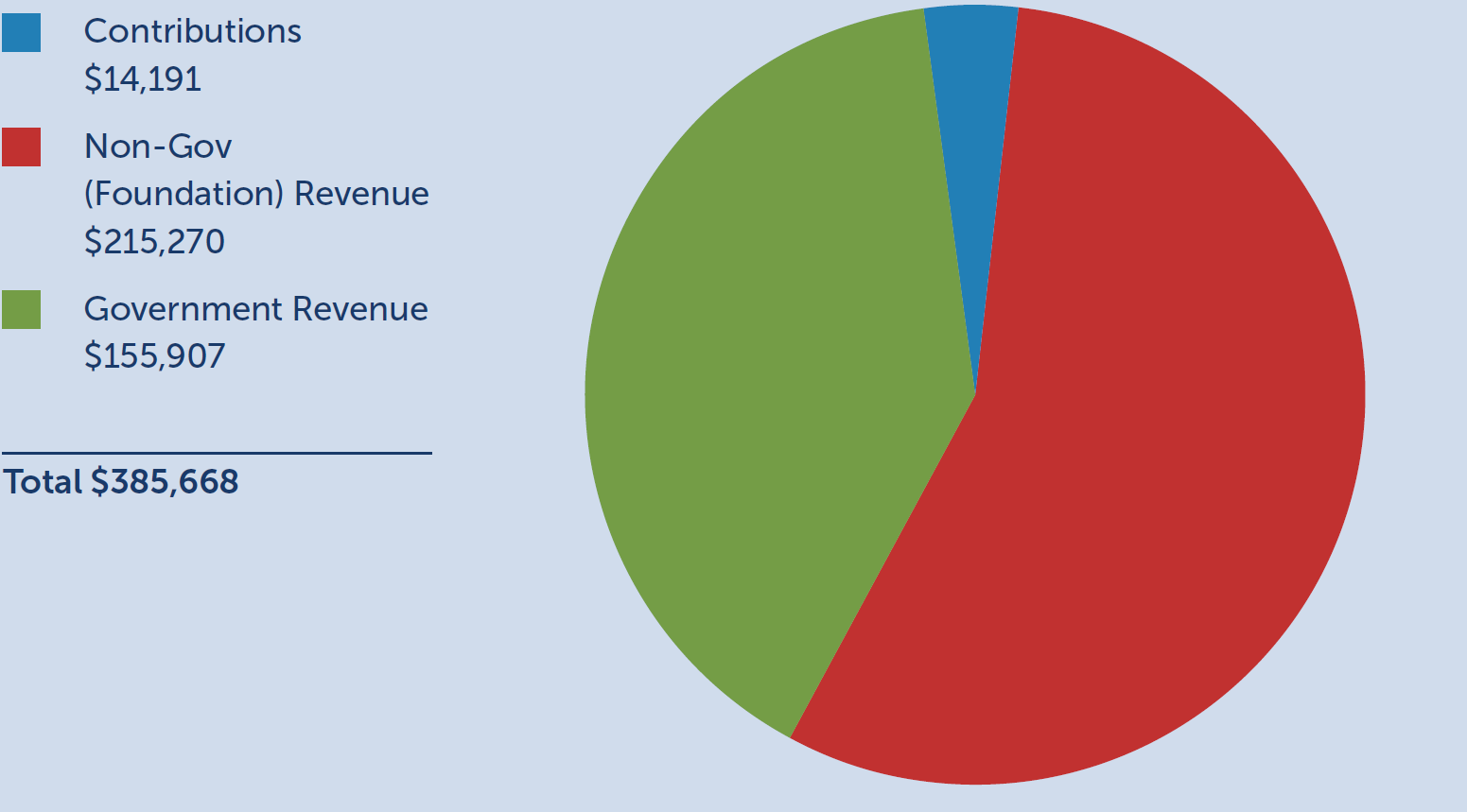
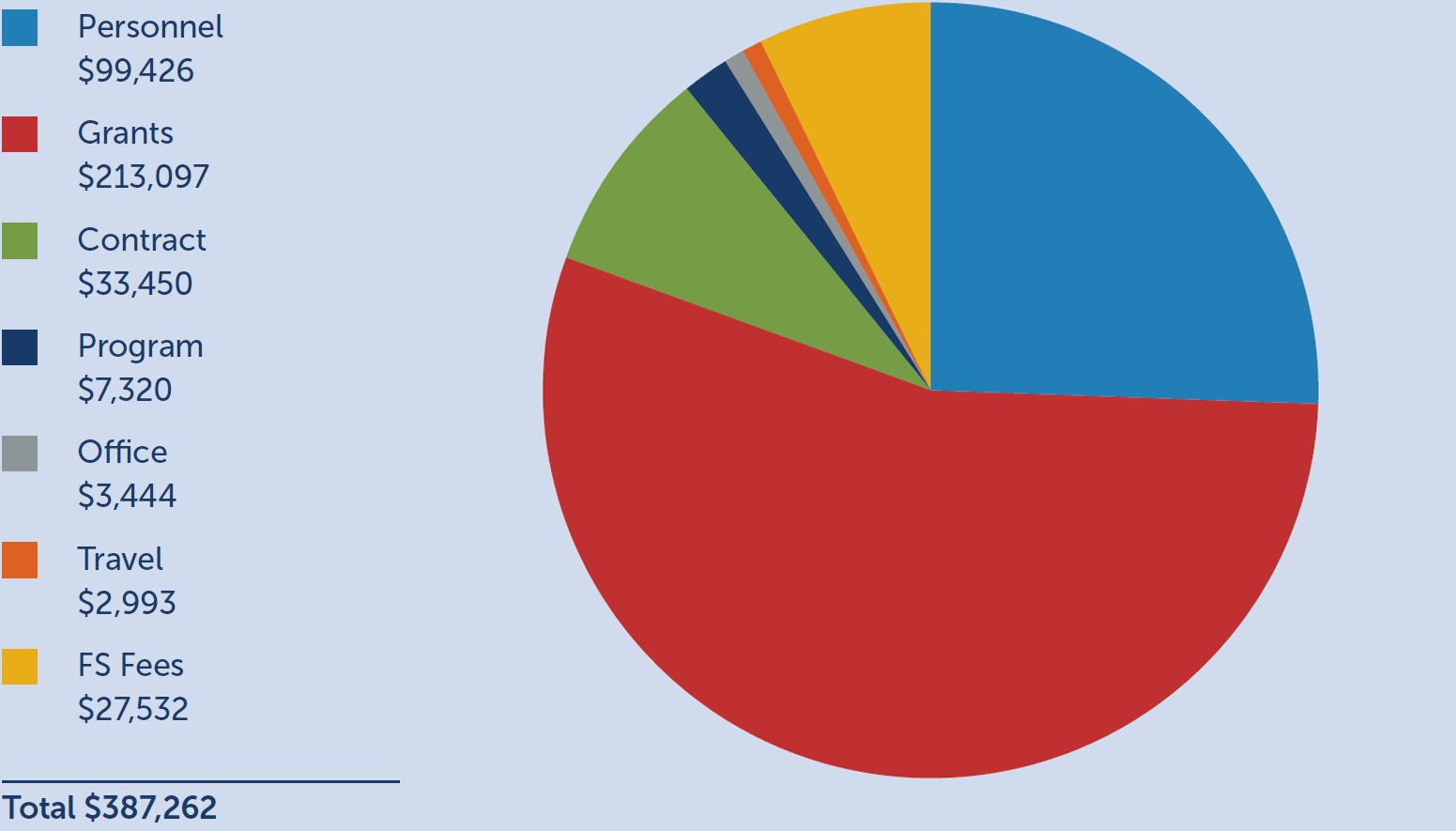
Advocating for Good Food Policy
RIFPC members offer their expertise on various aspects of the food system — from agricultural land use zoning, to food safety, to school food quality, to food business regulation — to any member of the Rhode Island State Legislature upon request.
In 2018 we went to the State House to advocate for full funding the Local Agriculture & Seafood Act Grant Program, fought for a technical assistance fund for commercial food waste generators subject to state food waste laws, and testified on behalf of the Rhode Island Food Donation Act, which gives individuals, schools, grocers, restaurants, hotels, caterers, farmers, hospitals, and food-makers immunity from criminal and civil liability when donating to emergency food providers. We also provided a platform for stakeholders to work on policy initiatives in the areas of increasing the purchasing of local food by our schools and other anchor institutions, and decreasing consumption of sugar sweetened beverages.

